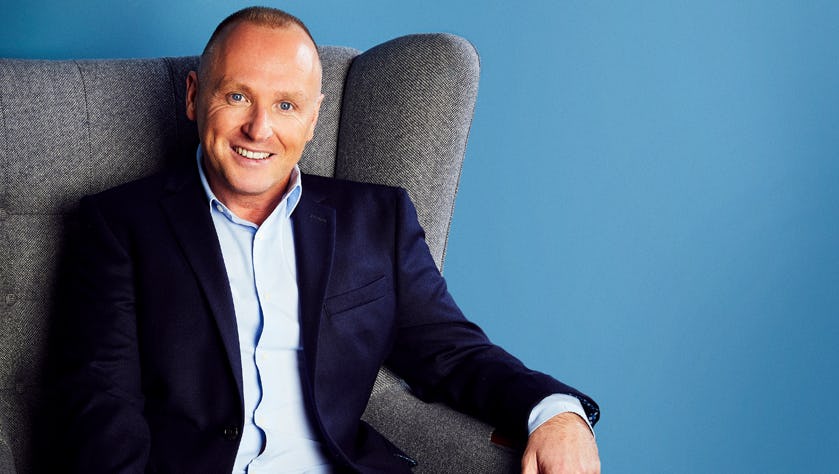
Working from anywhere can be great for professionals, but it can also come with some challenges. We ask psychotherapist Owen O’Kane, a former NHS clinical lead and Sunday Times bestselling author, for his advice on how to have important mental health conversations with your team
Are many professionals struggling with their mental health at the moment?
Adjusting to a new way of working in 2020 has been challenging for many, with professionals reporting an increase in feelings of isolation and loneliness, anxiety, screen fatigue and flagging morale.
How involved should I be as a team leader in my colleague’s mental health?
The challenge with mental health is that many people will still find it difficult to tell their manager they are struggling. Of course, some work cultures manage this well but, sadly many don’t. It’s a leader’s responsibility to ensure that their workforce is well, and that includes mental wellness. I would encourage leaders to start conversations around mental health, check in with their workforce, provide training and talks, and look out for a decline in mental wellness.
Signs that someone might be mentally less well include taking an increased number of sick days, personality changes, reduced productivity or emotional outbursts. It can also manifest as difficulty managing a workload or making decisions, appearing persistently stressed or struggling with concentration or attention to detail.
I can see a colleague is struggling. What’s the best way to initiate a conversation around their mental health?
Many managers worry they’ll offend someone if they ask how they are. But the employee will likely be relieved that someone has noticed. I suggest you adapt a ‘down-to-earth’ conversational approach, avoiding clichés or psychological jargon. A starting point could be, “Shall we grab a coffee over Zoom? It would be great to catch up with you.” It’s a simple conversation that may lead into an opportunity to acknowledge and normalise someone who is mentally distressed.
If someone is sharing their struggles with me, what should I say and do?
The simple answer is to start off by listening more and saying less. There’s a danger of interjecting too much or trying to problem solve too early. This can feel invalidating for the person doing the sharing. It’s also important that you don’t start to overshare your own issues, which can leave the person feeling unheard. Focus on the following four aspects: listening, empathising, normalising the experience and then working together to find solutions, help and support.
Is there anything I should avoid?
Avoid phrases such as, “I know how it feels”, “It’s not that bad”, “It’s all in your head”, “You just need a holiday” or “Come on, pull yourself together”. Anything that sounds as if it’s a judgement, minimises the experience or undervalues the person will shut the conversation down.
Where do I draw the line between the personal and the professional?
Once you’ve created a safe environment for your colleague to name their challenges, feel heard and know they will be supported, the next step is to signpost appropriate support.
Some issues will require professional support and, in these instances, I strongly advise against detailed conversations or attempts to deliver amateur therapy. There’s always the risk of opening a ‘Pandora’s box’ if this isn’t managed sensibly. Keep your interaction professionally balanced but with a very humane touch.
What’s the most helpful thing I can do for my team in terms of mental health support?
Create a healthy culture in which mental wellbeing is prioritised just as much as physical wellness. Encourage time-outs and breaks throughout the day. Offer support structures that are accessible to all team members. Don’t be afraid to share personal vulnerabilities from time to time – this can have a knock-on effect and normalise mental wellness conversations. Finally, be kind and compassionate to your team – it’s positively contagious.
Owen O’Kane (@owenokaneten) www.owenokane.com is a psychotherapist, Former NHS Mental Health Clinical Lead, and Sunday Times bestselling author of Ten Times Happier
Did you enjoy this article? You might also like these other Spaces magazine stories:
Five ways to build trust among a virtual workforce
How to defuse irritation while working from home
Share this article
 Read now How to be more persuasive from behind a screen
Read now How to be more persuasive from behind a screen
 Read now Five high-design gadgets set to transform your 2021 work life
Read now Five high-design gadgets set to transform your 2021 work life